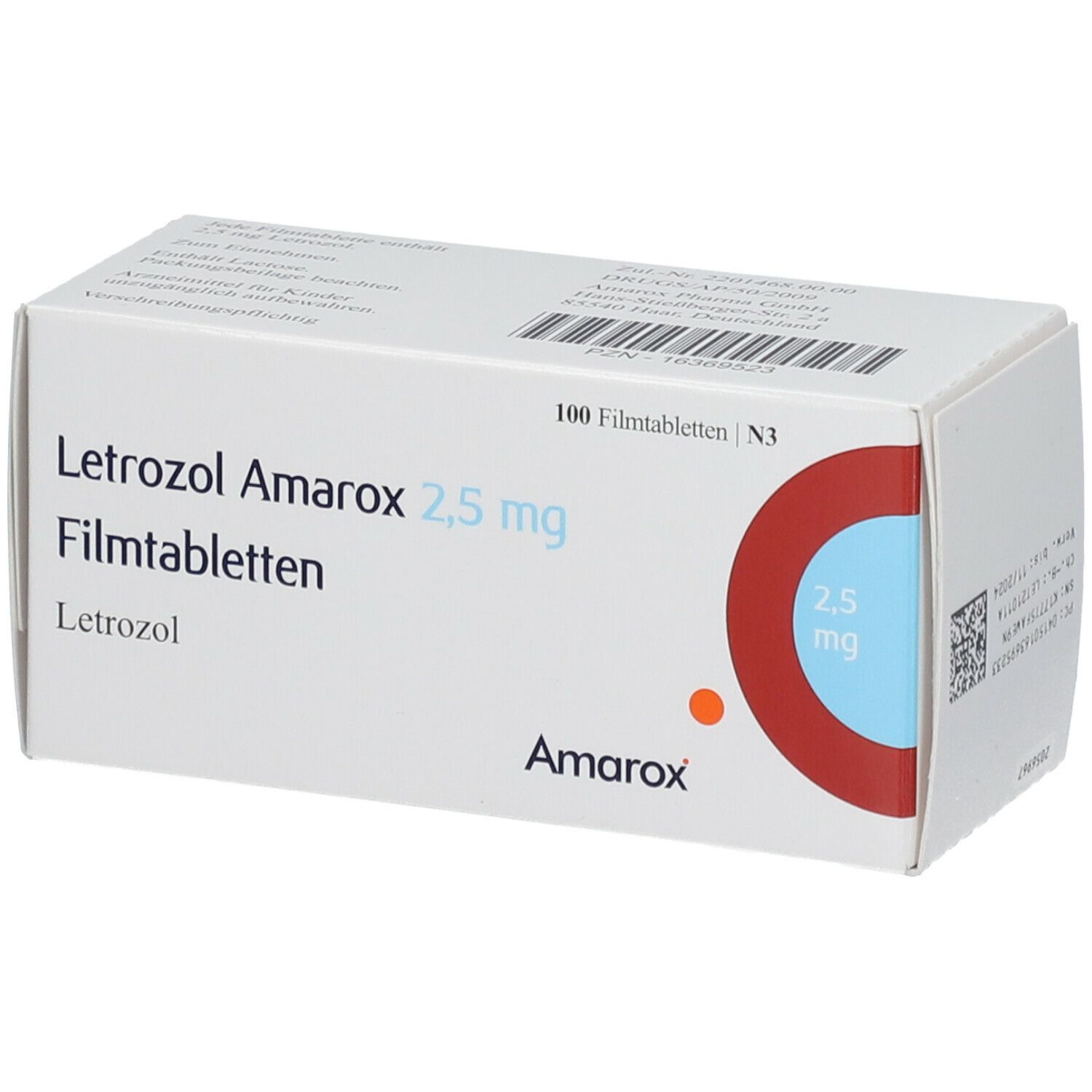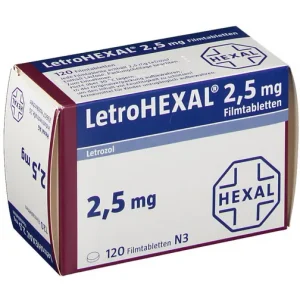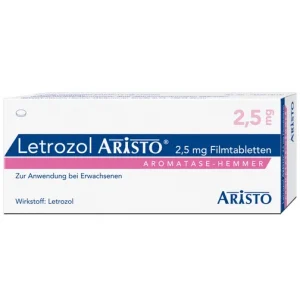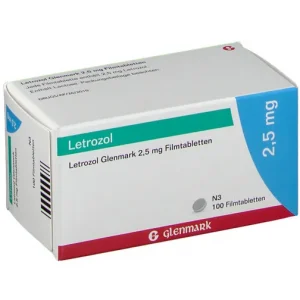Description
Drug interactions
No clinically significant interactions are observed when letrozole is used concomitantly with cimetidine and warfarin.
Clinical experience regarding the use of letrozole in combination with other anticancer drugs is currently not available.
According to in vitro studies, letrozole inhibits the activity of the cytochrome P450 isoenzymes CYP2A6 and CYP2C19 (the latter moderately). In deciding the clinical relevance of these data, it should be taken into account that the CYP2A6 isoenzyme does not play an important role in drug metabolism. In in vitro experiments, letrozole at concentrations 100-fold higher than equilibrium plasma concentrations was shown to have no ability to significantly inhibit the metabolism of diazepam (a substrate of the CYP2C19 isoenzyme). Therefore, clinically relevant interactions with the CYP2C19 isoenzyme are unlikely. Nevertheless, caution should be exercised when co-administering letrozole with drugs that are mainly metabolised by the above isoenzymes and have a narrow therapeutic index.
Dosage of letrozole
- Intravenously, independent of meals.
- Adults: the recommended dose of letrozole is 2.5 mg once daily, daily, long-term (for 5 years or until relapse).
- As extended adjuvant therapy, treatment should be continued for 4 years (not more than 5 years).
- Letrozole should be discontinued if there are signs of disease progression.
- In patients with end-stage disease or metastatic cancer, treatment with letrozole should be continued as long as tumour progression is established.
- No dose adjustment of letrozole is required in elderly patients.
- Patients with hepatic and/or renal impairment: no dose adjustment is required for hepatic or renal impairment (creatinine clearance ≥10 ml/min). However, in cases of severe hepatic impairment (Child-Pugh class C), patients should be under constant observation.






Reviews
There are no reviews yet.